What Trump is Costing America
The US-led international order was good for the world. But even better for the US.
At least since the earliest days of the Clinton era, a substantial and growing portion of American voters has resented the international order led by the United States for a simple reason: America’s leadership was less about giving orders to others and more about America doing the heavy lifting. And picking up the tab.
Seen that way, it’s not an unreasonable objection.
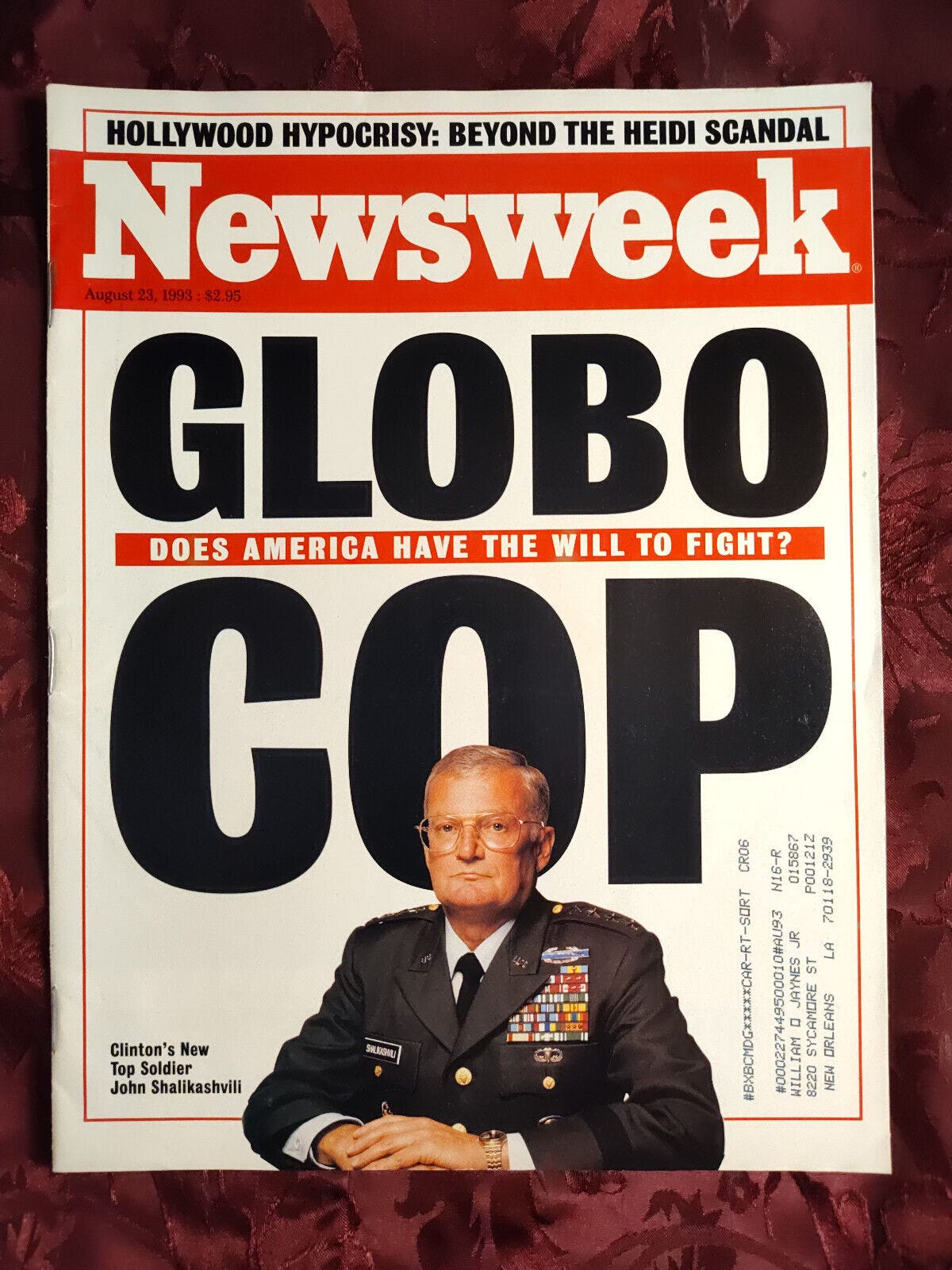
Clinton, Bush Jr., and Obama all pushed back against the desire to let go of the burdens of leadership. But then came Trump.
In his first term, Trump gave voice to this long-brewing view but his policy mostly stuck with the old norms — thanks to the influence of old foreign policy hands like James Mattis in Trump’s cabinet. But the old hands are now long gone. In his second administration, Trump has surrounded himself with the mad, the bad, and the dangerous to know, plus a smattering of incompetent goobers who can’t believe their luck. And he is abandoning American leadership with the enthusiasm of Johnny Paycheck singing “take this job and shove it.”
Trump immediately pulled the United States out of the World Health Organization. Other United Nations agencies know they’re on borrowed time.
Trump withdrew the United States from the Paris climate agreement. He scrapped USAID and dozens of programs supporting lives and development around the world, with predictable results. He erased Voice of America, and other broadcasters, which has been delivering an American perspective worldwide since 1942.
Trump abandoned Ukraine. He sent his vice president to Europe to tell Europeans they were the greatest threat to Western civilization. He has belittled and insulted NATO so often it’s not remotely clear that the United States would respond if a NATO member were attacked and what would once been a thunderous shock — the US withdrawing from NATO — would now feel like a logical culmination.
And Trump’s supporters cheered all of it. America first, they say.
I think I understand this view.
Why should the US always have to take the lead on matters far away? And why should American taxpayers pick up the tab? The United States founded the United Nations in 1945 and it has always been the largest donor. Today, the US covers 22% of the UN’s general budget and 27% of the cost of its peacekeeping operations.
The US pays and pays and pays, and when something goes wrong, the US gets blamed. And for what? Not for the benefit of the US, says MAGA. This is all for the good of others. Well, screw that. The US has lots of problems at home. Screw the international order. Screw international leadership. Let’s put American dollars to work at home.
That’s the argument.
The response from those who support the international status quo and think that what Trump is doing is horrifying — people like me — usually focuses on three points.
First, we say the whole international order that Trump is burning to the ground was mostly created by the United States. He is destroying the work of generations of American presidents and statesmen.
I can understand why Trump’s fans aren’t impressed by that argument. It’s compelling for American-history obsessives like me. But that was then, this is now. A bad idea now is a bad idea now, even if it was a good idea in the past. Which is a pretty solid rebuttal.
Second, defenders of the status quo say American leadership has made the world a much better place. Look at the millions of Africans saved by American tax dollars via PEPFAR, a program created by George W. Bush.
That’s indisputably true. But it doesn’t explain why it’s on Americans to pay for Africans, or why American dollars shouldn’t instead go to Americans in need. (The fact that savings from scrapping foreign aid are far likelier to go to a tax cut for billionaires is always omitted from these debates, so let’s move on.) There may be a claim in moral philosophy, but the moment this turns into a undergrad seminar, the debate is over. When J.D. Vance appealed to Catholic doctrine to make the case for keeping American money at home, he got slapped down by no less an authority than the Pope. Did that matter to MAGA? It did not.
That brings people like me to their third defence of the status quo: American leadership of the international order, we say, serves the interests of the United States.
Doing good around the world makes people think more highly of America. That’s soft power. And soft power is awfully handy for Americans officials abroad. More dramatically, the international order built and led by America produced an unprecedented absence of wars between great powers. Which is a very good thing. Especially for great powers.
But again, I can see how an average American wouldn’t find any of that terribly persuasive.
“Soft power” is a hazy abstraction that helps Americans diplomats when they sit down to … do whatever it is they do. Who cares? For this argument to be persuasive, you have to already believe that shaping international accords, directing international action, setting the terms of international trade, promoting democracy and liberty, and the many other dimensions of international relations actually matter to an ordinary American — a guy in Topeka whose truck won’t start, can’t make rent, and thinks buying a home is a fantasy. That’s unlikely, says me with considerable understatement.
As for preventing wars between great powers, it’s hard to say that’s not good. But wars that don’t start are not exactly the stuff of daily thought. I’m pretty confident that “hey, you know, it’s been ages since there was a war between great powers and that deviates strikingly from the pattern that preceded the establishment of the US-led international order” is a statement that has never been spoken in any working-class bar. Ever.
Which brings me to the final argument for America’s continued leadership of the international order, the argument which is seldom made, and almost never made as bluntly as it should be: It’s not just good for America in vague, distant, abstract ways. It’s good for America in the ways every American appreciates: money and jobs.
It makes America a ton of money. A river of money, in fact. And that money supports lots of high-skill, high-pay jobs.
I’ll explain using NATO as an illustration, although the point is much broader than NATO. Or even military affairs.
Donald Trump has been saying for ages that all the other NATO members are freeloaders.
US taxpayers pay a ton to support America’s kick-ass military. But Europeans and Canadians give their soldiers Korean War surplus — so they can put the money they save on military budgets into socialist healthcare and six-week paid vacations and sex-change surgeries for their pets. They can do that because they know Uncle Sam’s got their back.
To which people like me must respond, through gritted teeth: He has a point. It’s grossly exaggerated. It started getting a lot less true in 2022, when Vladimir Putin invaded Ukraine and most European members rapidly ratcheted up their military spending. But Trump does indeed have a point. And Americans who resent this freeloading are not entirely wrong to do so.
But here is what Trump and MAGA miss: Being by far the biggest dog in NATO means the United States sits at the head of the table. It sets the agenda. It directs decisions to its liking. Because he who pays the piper calls the tune.
So when the United States insists that NATO members maintain equipment that can operate with other NATO members, everyone around the table sits up and listens. The United States doesn’t order other countries to do as it wishes. But other countries always listen very closely to anything the US says. See “piper,” above.
And when the United States says that having a whole bunch of different weapons systems undermines interoperability, the US has everybody’s attention. And when it say, for example, that NATO’s many different models of jet fighters should be replaced as much as possible with one jet fighter, members nod.
And when the US says that jet fighter should be the F-35, NATO members start buying F-35s.
That’s why the F-35 is now being flown not only by the United States but by a host of American allies, including the United Kingdom, the Netherlands, Norway, Italy, and Germany. That is why it has been ordered by more countries, including Canada. And why it is under consideration by still more countries, including Portugal.
It’s not that the F-35 is universally agreed to be the best. In fact, the F-35 is controversial in aviation circles. It has supporters. But it also has lots of detractors who say other countries would be better off buying other jets.
But the F-35 is backed by the United States. And thanks to its leadership role, the US is very persuasive.
Now, the cost of an F-35 is around USD$80 to $100 million per plane. The UK alone is planning to buy up to 138 F-35s. That’s a total sale price of around USD$13.8 billion. That’s a big number. But these jets have to be serviced and have their electronics updated throughout their lifetimes, and that cost can dwarf the original purchase price.
So there is a mountain of money at stake in these choices.
Who makes the F-35? Lockheed Martin.
Where is Lockheed Martin headquartered? Bethesda. Which, not coincidentally, is right next door to Washington D.C.
Where is the F-35 built? In Fort Worth, Texas.
And where is Texas? In the United States of America.
The simple truth is that the United States really does contribute disproportionately to the international order. In money. In expertise. In aggravation when things go wrong.
It is expensive and a pain in the ass to be the globocop.
But the generosity of Americans has been handsomely rewarded.
Want a sense of how much money has flowed to America thanks to the international order MAGA despises? Donald Trump’s swift destruction of that leadership has given us a handy glimpse of exactly that.
As even a casual follower of the news will know, Trump shredded the relationship between the United States and Europe over the past two months. The Europeans, realizing they can no longer rely on the United States, quite sensibly launched a massive spending program to re-arm European militaries. So whose weapons are they going to buy?
We live in a digital age. Modern weapons systems are as much about software and sensors and electro-magnetic spectrum as they are about engines and explosives. That means they all operate with invisible tethers to the people managing their software and sensors and spectrum. And where are those people and their controls? In the case of the flying computer known as the F-35, they’re in the United States.
If you’re a European country stunned to see the United States transformed from trusted ally to belligerent superpower, and you are in the market for new jets, that’s a huge vulnerability. Would you buy a Mac desktop after Tim Cook declared his burning personal hatred for you and all you stand for? No, you would not. Because if Tim ever decided to cut you off from the constant flow of updates and cloud services and whatnot that allow your Mac to function in top form, you’d be in trouble.
So what’s the solution for the Europeans?
Don’t buy the F-35. Or anything American.
Buy European.
Bear in mind that weapons acquisitions move like Second World War-era battleships: They’re slow and God help you if you want to change direction. It can easily take a decade or more to go from thinking “we should buy some of that” to having some of that in the field. And Donald Trump has been in office for less than two months. (Yes, really. It only feels like two years.)
Despite all that, a tectonic shift away from American military manufacturers to European producers is clearly underway already.
The wonderful thing about markets is that they are sociopathic: They don’t care about morality. Or politics. Or anything else a normal, functioning human being cares about. Their sole concern in the world is making money. Which means stock charts are typically a solid reflection of what lots of smart analysts around the world think a company’s future profit-making potential is.
So let’s take a look at six charts of weapons manufacturers. Three are American. Three are European.
I won’t bother saying which is which because I’m pretty sure you can guess.
Those are big moves. And military manufacturers are the battleships of stocks. You almost never see them change course like a Sea-Doo.
And I’ll note again that Donald Trump has only been president for two months. He has done an impressive amount of damage to the international order, but a global system built over 80 years cannot be undone in less time than the NHL playoffs take.
So what we see in these charts is a small glimpse of just how much value America derives from leading the international order.
Not “value” in some abstract, touchy-feely sense.
Value as in money. And jobs.
So, yes, Donald Trump is destroying the work of generations of American statesmen. He will do enormous harm to poor people around the world. And like the Joker in Dark Knight, he will set fire to a mountain of American soft power.
And he will make war between great powers more likely in future.
But if you’re MAGA, and you don’t care about any of that, consider this: Donald Trump is rapidly draining a river of money that has flowed for 80 years. And losing all the jobs that river sustained.
Lockheed Martin employs about 18,000 people in Forth Worth. If they read the news, they’re getting nervous.
The simple fact is the Pax Americana wasn’t just good for the world. It was very good for America.
And MAGA is about to discover that Joni Mitchell was right when she sang, “don’t it always seem to go that you don’t know what you got till it’s gone.”

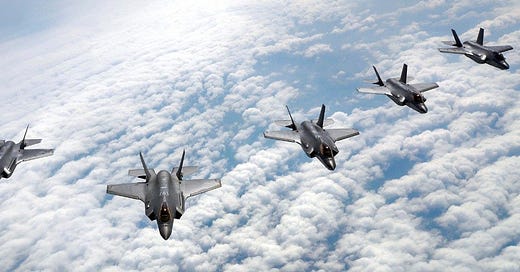


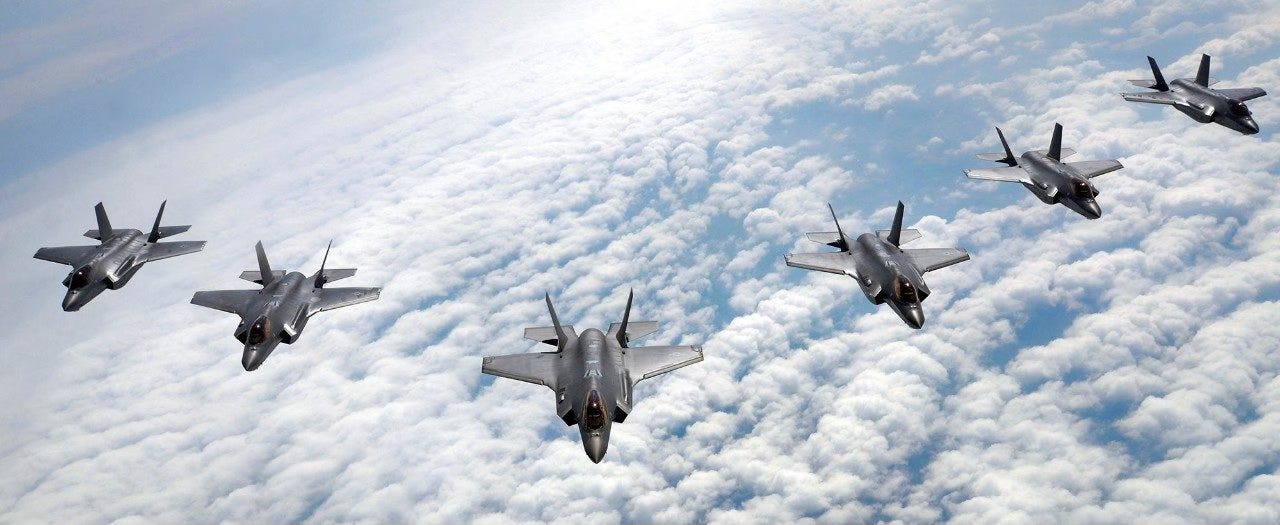
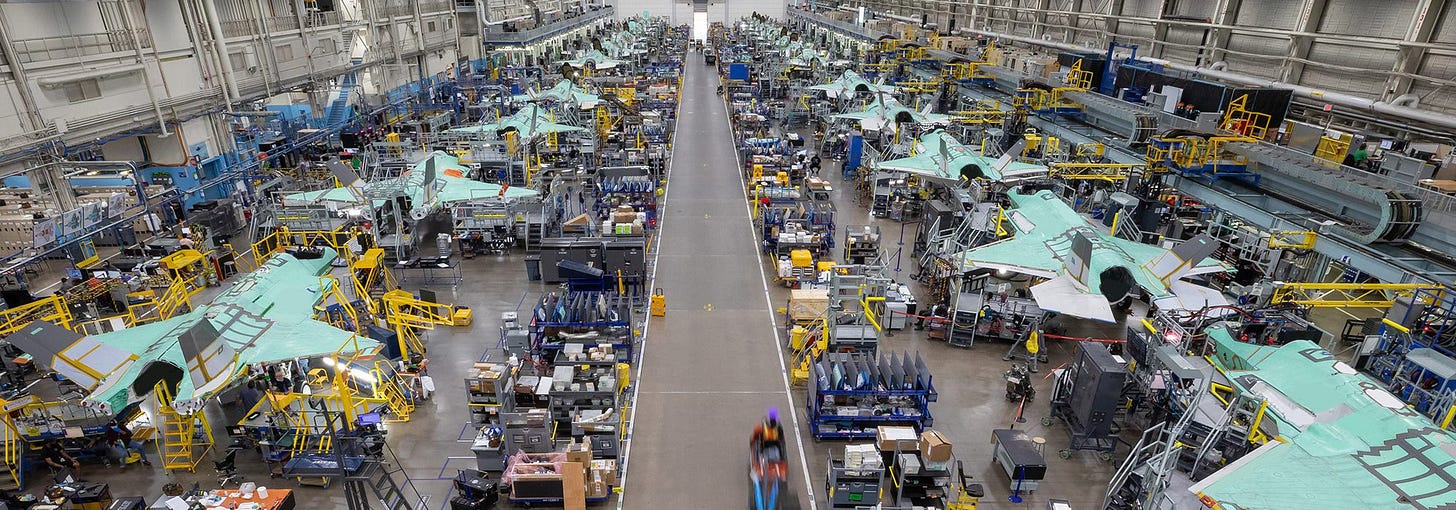
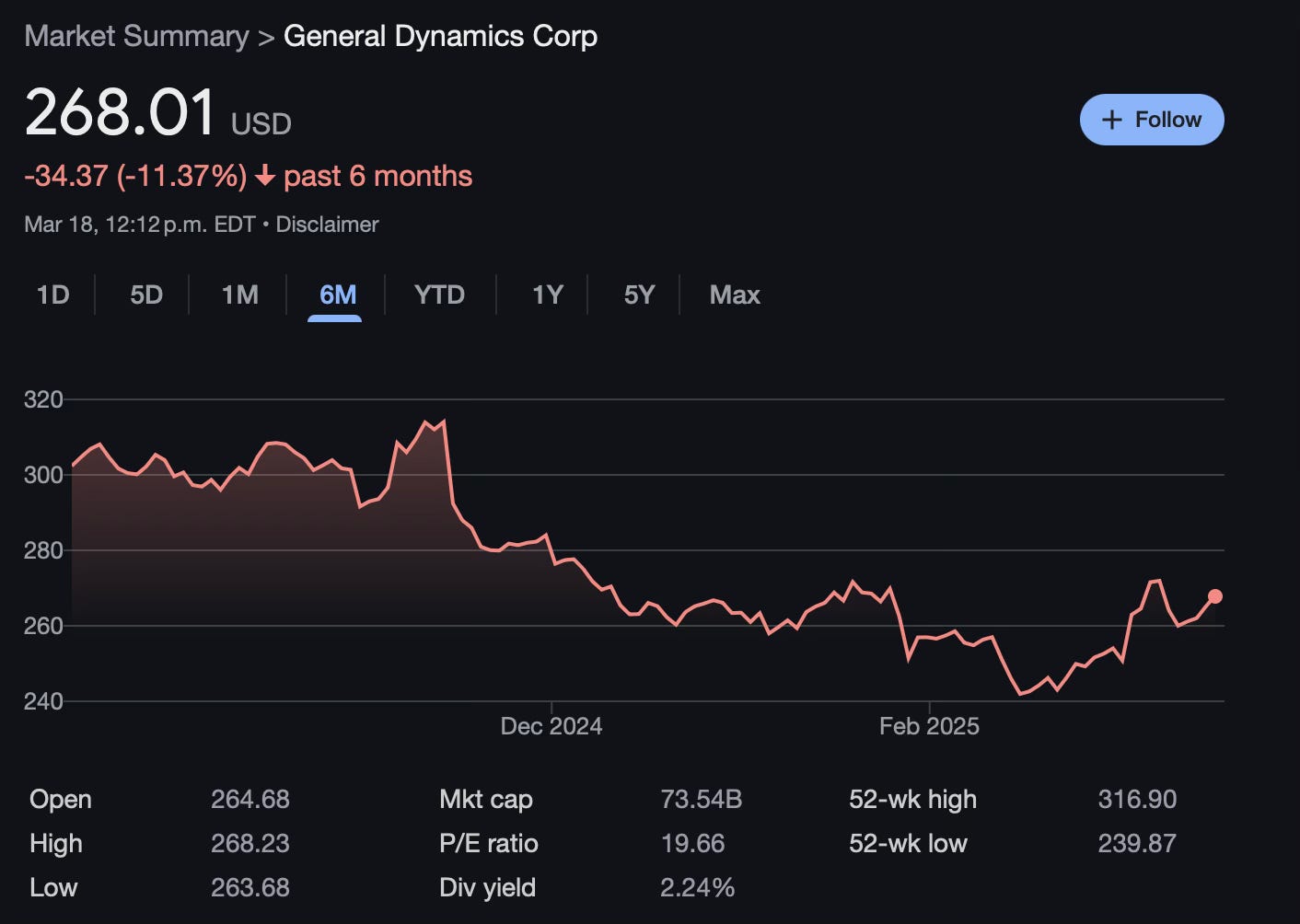
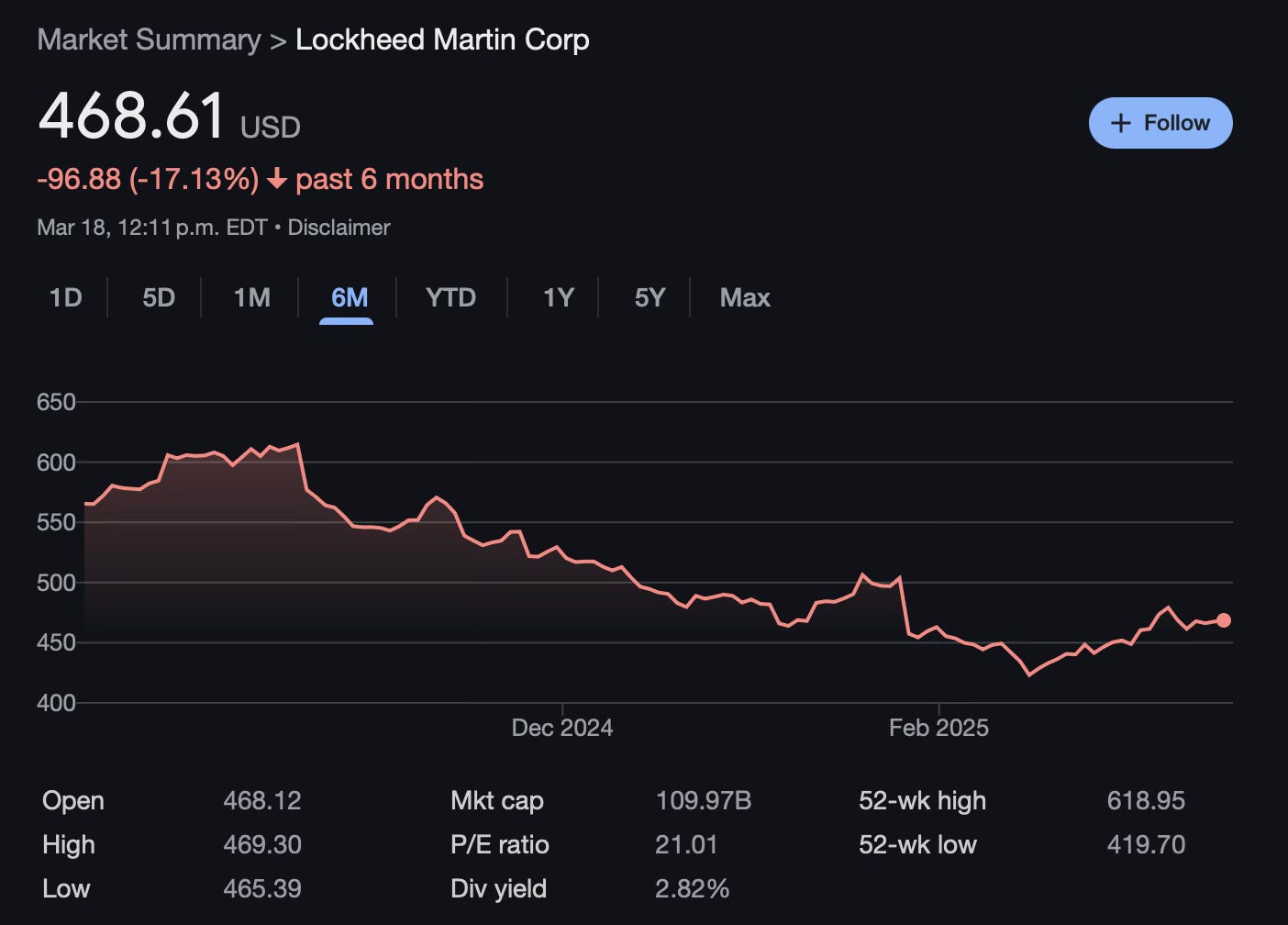
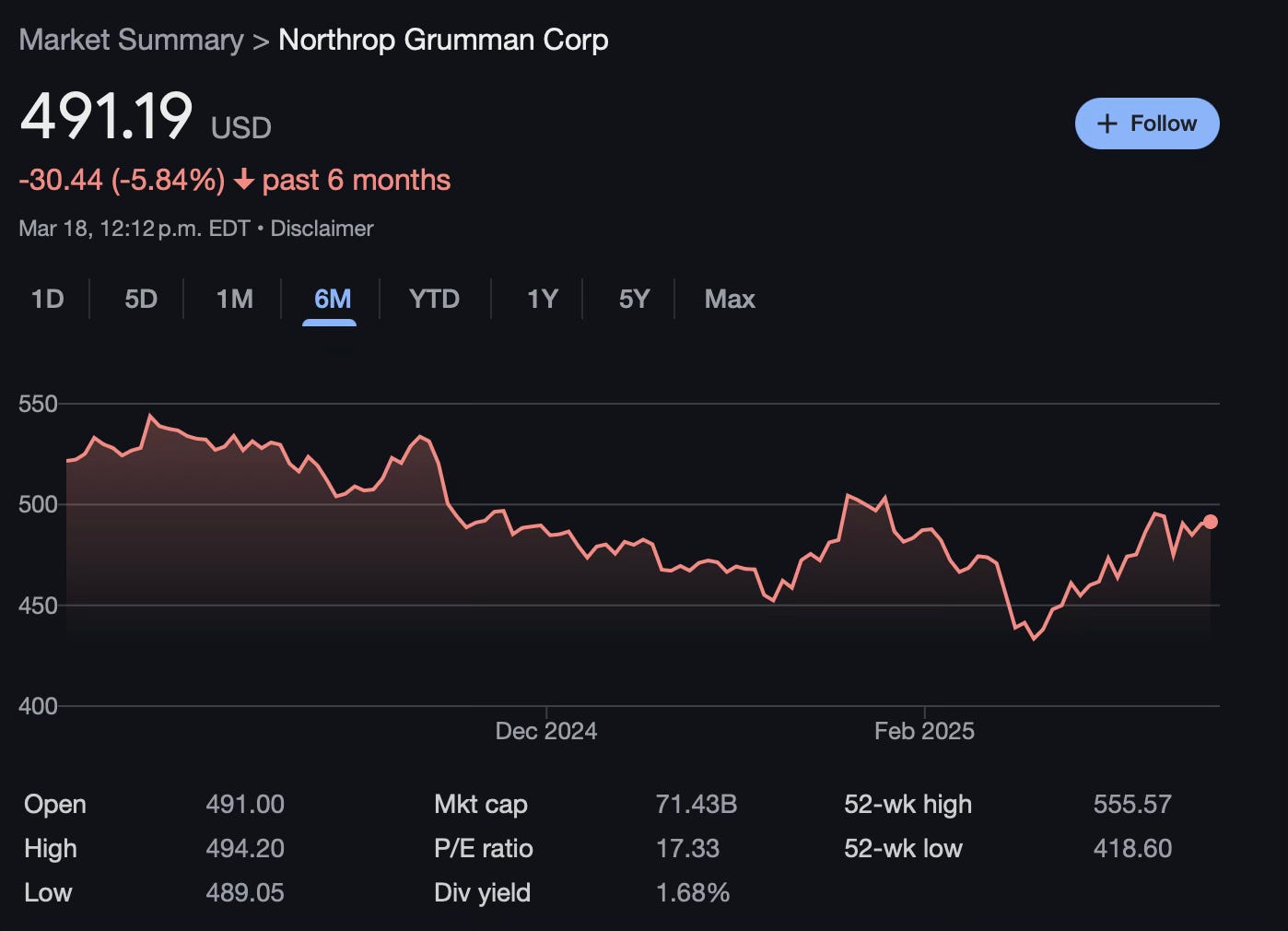
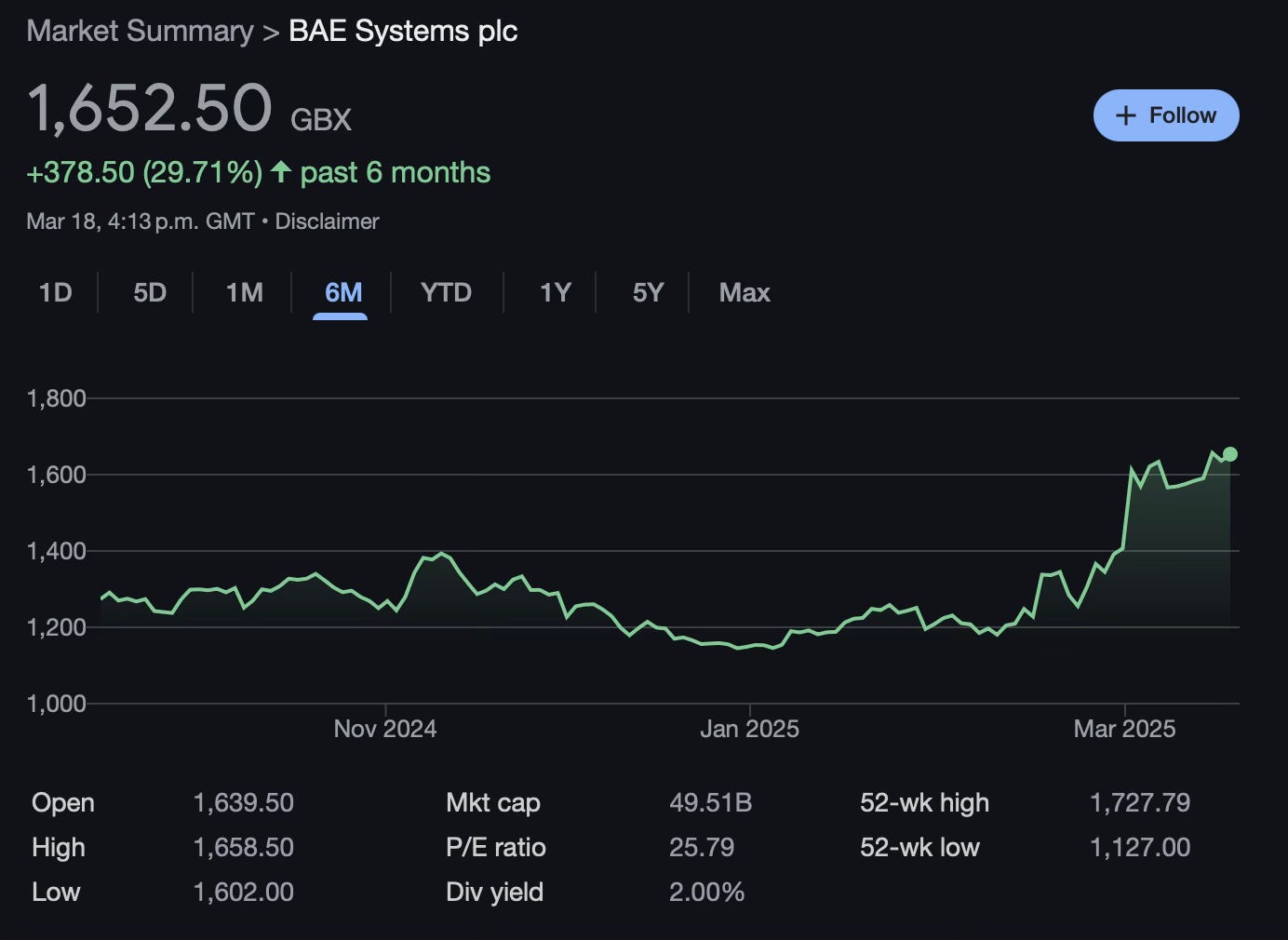
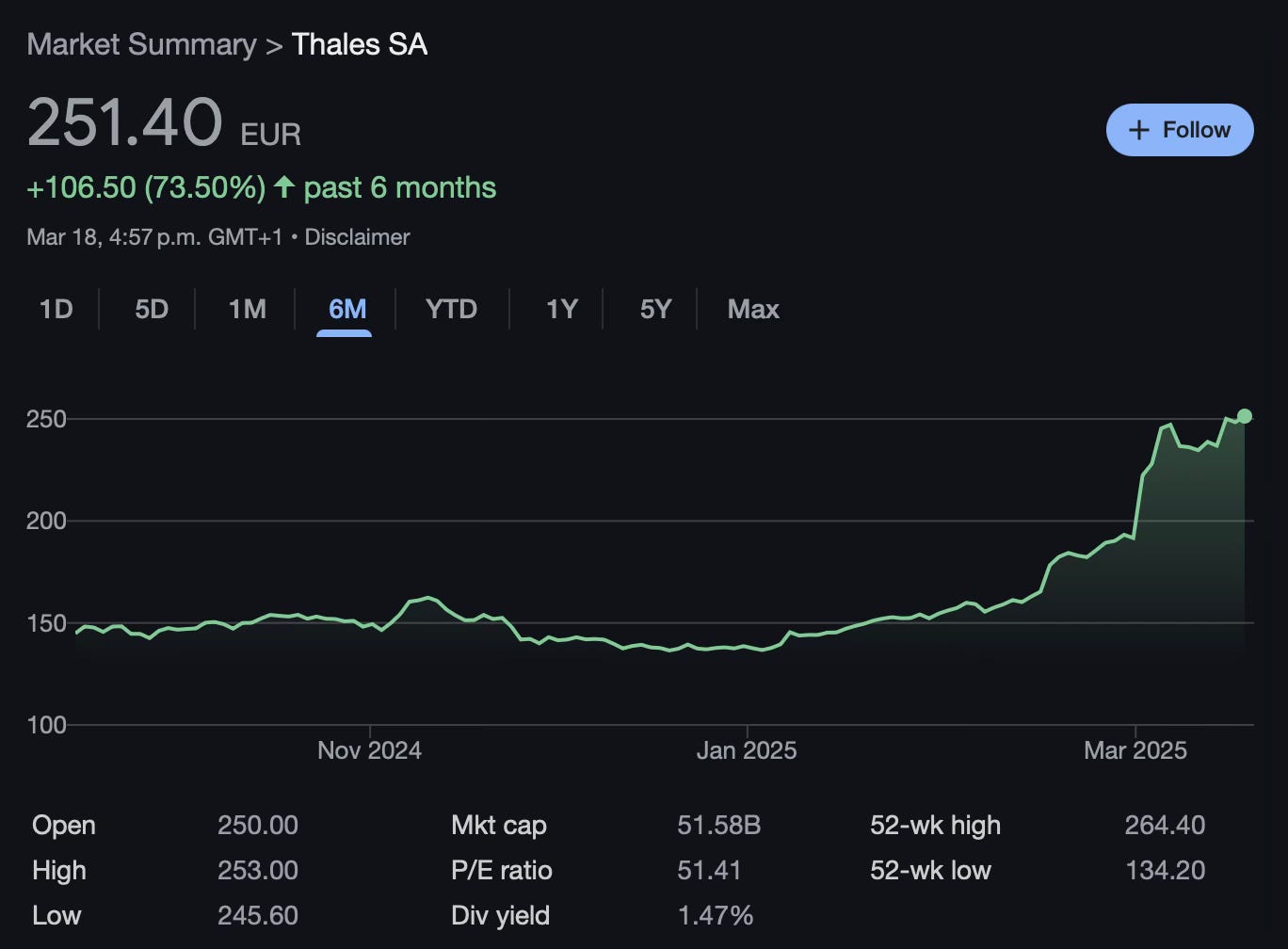
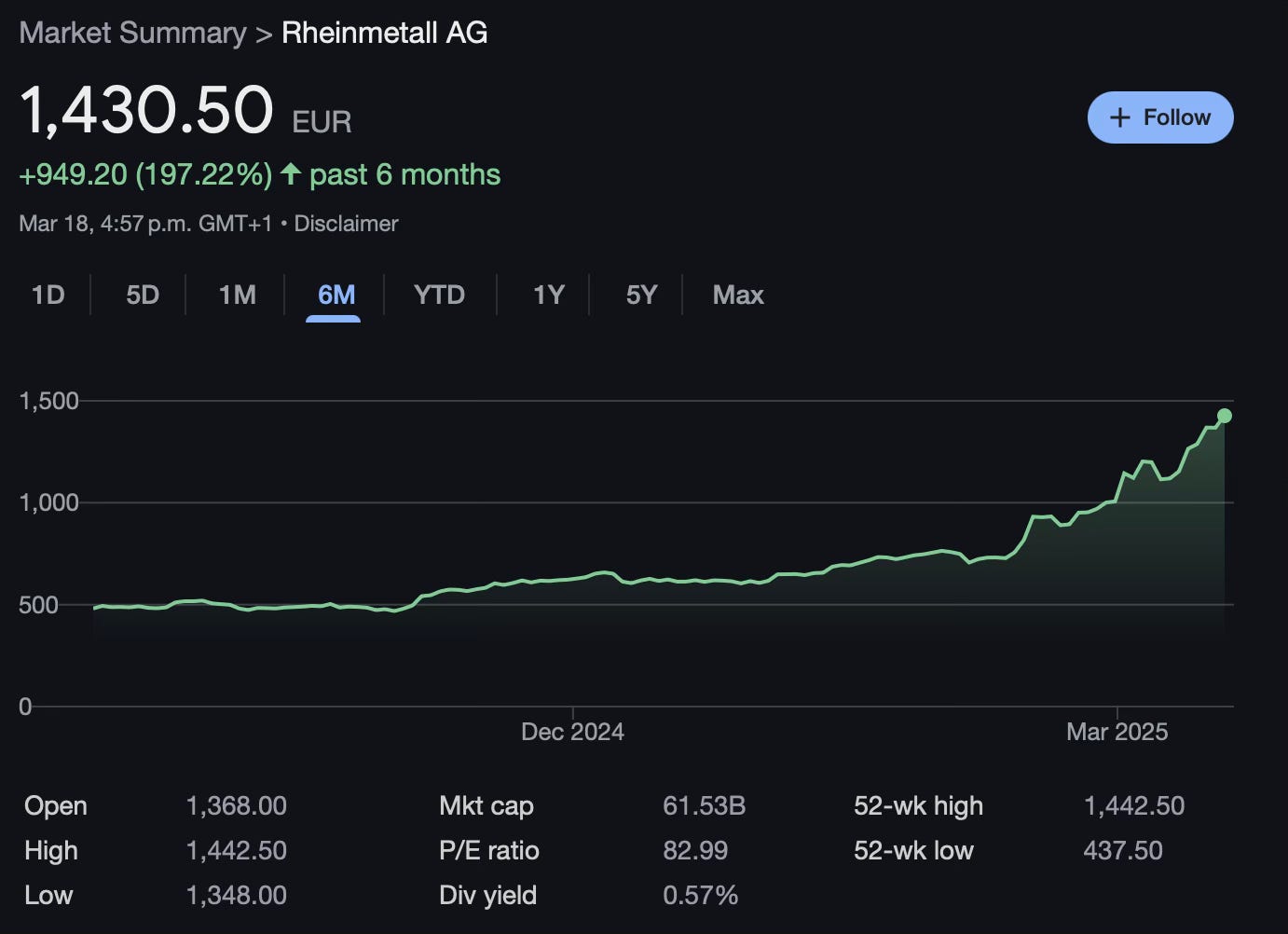
This is a truly well-balanced and dispassionate assessment of the existing international system, its costs and benefits, including for the United States. I admire the cool-headed analysis in the heat of the times. For one, you capture ably some of the hypocrisies I used to encounter as an American diplomat, with certain friendly nations (who shall remain unnamed) asking the United States to pay for and do the dirty work and then complaining about how bad we smelled (with shit all over us) when we were foolish enough to do it. (A self-interested analysis, I know, but just saying). Totally agree about the benefits, hidden and open, that accrue to the leader, including the power to frame US national interests as applying more broadly to everyone, even when the argument was a bit of a stretch.
The only quibble I have, and it really is only a quibble, is the somewhat dismissive reference to soft power, as though this were a trifling matter of importance only to effete diplomats. While I totally agree that a trucker in Topeka (or Fresno or Galveston or Grand Junction for that matter) has no reason to care, I think Americans as a group do, or should. Rightly or wrongly, some of us who used to represent the United States (proudly) overseas, believed that the greatness of our power (if you agree) was inseparable from our being good (or at least trying to). Once we abandon even that pretense (shared prosperity, human rights, stability, let's just make money together, the pursuit of happiness, we're in this thing together, bla, bla, bla), we really are no different or better than Putin or Xi Jin Ping. So if raw "hard" power is the only metric that matters, then the political-strategic calculation changes radically for most others, including Canada (which I don't need to tell you). Is it possible that our mad king president (who presumably doesn't think deeply about such things with his dominant lizard brain) sees your country as Putin sees Ukraine? If so, by God, that changes everything.
Nicely done.
Good for you to be a polite Canadian and leave out that Canada is ‘reviewing’ it’s F-35 order and will probably switch to Sweden’s Gripen - with the planes actually built in Canada. More Canadian and European jobs. Less American jobs. The Gripens can keep the Canadian border safe from a Southern or Northern invasion.